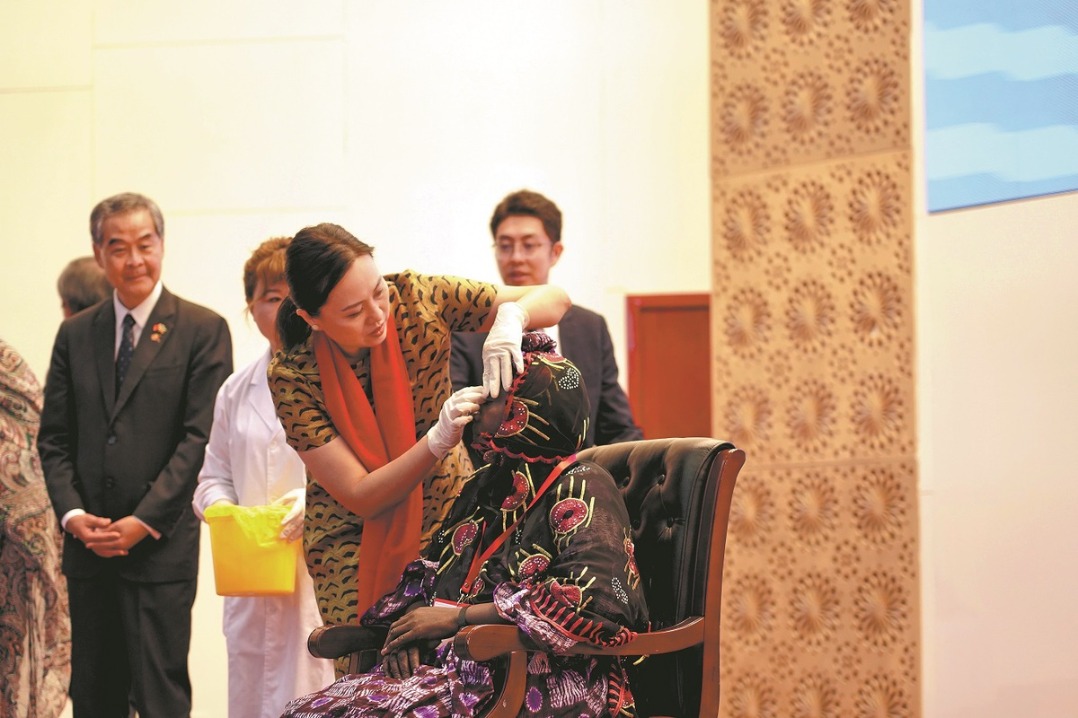56 lost Chinese cultural relics returned from Italy


In a gesture of international cooperation on cultural heritage protection, Italy has returned to China 56 cultural relics that were illegally transported to the European country and later confiscated.
Of the relics, 19 artifacts were repatriated to China at the end of October, and the rest will arrive soon, according to the National Cultural Heritage Administration.
The return of the relics is among the highlights of Italian President Sergio Mattarella's six-day state visit to China, which started on Thursday.
On Friday, President Xi Jinping and his wife, Peng Liyuan, appreciated some of these cultural relics put on display during a welcoming banquet hosted at the Great Hall of the People in Beijing for Mattarella and his daughter, Laura.
The return of the relics marks yet another instance of successful cooperation between China and Italy within the framework of their bilateral agreement aimed at preventing the illegal import and export of cultural relics.
It follows the previous repatriation of 796 Chinese cultural artifacts from Italy in March 2019. The two nations established an intergovernmental cooperation framework in 2006 to combat smuggling of cultural artifacts.
Between 2021 and this year, Italy's Carabinieri military police notified China about the seizure of 59 suspected Chinese cultural relics. The National Cultural Heritage Administration then provided detailed identification opinions and legal basis reports to the Italian authorities.
Most of the artifacts were found to have been unearthed in the provinces of Gansu, Qinghai and Shaanxi, and were estimated to have high historical, artistic and scientific value.
Chinese experts identified 56 of the relics, including pottery figurines from the Western Han (206 BC-AD 24) and Tang (618-907) dynasties and animal-shaped ceramics from the Yuan Dynasty (1271-1368), all vivid witnesses of the stable, rich, open and tolerant societies of their times.
Among the identified relics were also painted pottery of Majiayao culture, an ancient Chinese culture dating back more than 5,000 years, providing valuable material evidence for the study of the origins and early development of Chinese civilization.

The remaining three relics are still under investigation.
Through diplomatic channels, China officially requested the return of the cultural relics. Italy subsequently decided to return the 56 identified ones.
Amid China's intensified efforts to recover cultural relics lost overseas, more than 2,113 artifacts or sets of artifacts have been successfully brought back over the past 12 years, according to the National Cultural Heritage Administration.
China's cooperation with Italy in the cultural heritage field has achieved fruitful results, the administration said.
As this year marks the 700th anniversary of the death of Italian explorer Marco Polo, who visited China in the 13th century and opened the door for cultural exchanges between China and the Western world, several exhibitions on his legendary travels have been or will be held in the two countries.
China and Italy have also carried out studies on nine cultural heritage projects, including the value interpretation of the Maritime Silk Road and protection of water-saturated wooden artifacts.
- Financial universities address AI-age education challenges, opportunities
- Book of Xi's discourses on natural resources work published
- China's urban planning sets good example
- Henan puts brakes on student night cycling trend
- Developed countries should walk the talk on climate
- Broad-based system needed to boost fertility





































